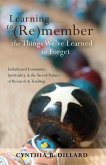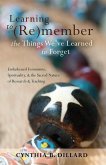The author's anti-colonial discursive platform addresses distorted Eurocentric views of Africa. It raises ontological and epistemological questions about teaching methods and methodologies relating to Africa, and highlights knowledge indigenous to Africa.
One is always struck by the brilliant work of George Sefa Dei but nothing so far has demonstrated his pedagogical leadership as much as the current project. With a sense of purpose so pure and so thoroughly intellectual, Dei shows why he must be credited with continuing the motivation and action for justice in education. He has produced in this powerful volume, Teaching Africa, the same type of close reasoning that has given him credibility in the anti-racist struggle in education. Sustaining the case for the democratization of education and the revising of the pedagogical method to include Indigenous knowledge are the twin pillars of his style. A key component of this new science of pedagogy is the crusade against any form of hegemonic education where one group of people assumes that they are the masters of everyone else. Whether this happens in South Africa, Canada, United States, India, Iraq, Brazil, or China, Dei's insights suggest that this hegemony of education in pluralistic and multi-ethnic societies is a false construction. We live pre-eminently in a world of co-cultures, not cultures and sub-cultures, and once we understand this difference, we will have a better approach to education and equity in the human condition.
One is always struck by the brilliant work of George Sefa Dei but nothing so far has demonstrated his pedagogical leadership as much as the current project. With a sense of purpose so pure and so thoroughly intellectual, Dei shows why he must be credited with continuing the motivation and action for justice in education. He has produced in this powerful volume, Teaching Africa, the same type of close reasoning that has given him credibility in the anti-racist struggle in education. Sustaining the case for the democratization of education and the revising of the pedagogical method to include Indigenous knowledge are the twin pillars of his style. A key component of this new science of pedagogy is the crusade against any form of hegemonic education where one group of people assumes that they are the masters of everyone else. Whether this happens in South Africa, Canada, United States, India, Iraq, Brazil, or China, Dei's insights suggest that this hegemony of education in pluralistic and multi-ethnic societies is a false construction. We live pre-eminently in a world of co-cultures, not cultures and sub-cultures, and once we understand this difference, we will have a better approach to education and equity in the human condition.








